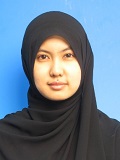The COVID-19 outbreak is indeed a phenomenon that has indubitably shaken the four corners of the world at the dawn of a new decade. Together with the rest of the population, it has put Muslims to the test on how they react to a pandemic that profoundly impacts upon their daily routines and religious duties. The closure of the two holiest cities of Makkah and Madinah as well as a ban on flights entering the Kingdom of Saudi Arabia, are manifestations signifying to other Muslim nations that pre-emptive measures are paramount to curb the spread of COVID-19. Muslim communities in many parts of the world have followed suit and adopted necessary measures in their own localities by implementing unprecedented decisions, such as the temporary and total closures of mosques, which include the cancellation of congregational prayers. Further, Muslim scholars and Muftis in some jurisdictions have come up with jurisprudential guidance in various aspects of religious matters, from the solemnisation of marriages by observing the required social distance, to the proper handling and burial of the bodies of the deceased that are infected with the coronavirus.
While we witness the pragmatism exhibited by segments of the Muslim ummah in responding to change, the other side of the coin appears to display a different scenario, where people seem to go about business as usual, either in feigned ignorance or full realisation that their actions carry a grievous risk to the whole community. For instance, the international religious gathering of nearly 9000 people in Indonesia and Friday prayer congregations in other parts of the world in spite of COVID-19 warnings and earlier incidents, have led us to wonder as to the extent of social responsibility present in the minds of some Muslims in weighing priorities, and whether their understanding of the religion are in fact unplugged from reality.
The COVID-19 hourglass is apropos for Muslims to reevaluate where we are in the Islamic paradigm of thought. It is the time to repose and review habitual routines and excessiveness that may cloud Muslim thinking. In as much as we have seen reports of clearer skies and cleaner air in certain parts of the world such as China, and that people in India are now able to see the Himalayas for the first time from where they live to be signs that the earth is experiencing less pollution, Islam is also perceptibly being cleansed from innovative thoughts and practices that divide the ummah.
At the time of this coronavirus onslaught, Muslims must be made to realize how germane and accommodating Islam is in placing what is first and essential (awlawiyyat), and to be reminded that Islam is to ease (yusr) and not to harm (dharar), and that protecting one life is akin to protecting the whole of mankind (Al-Maidah: 32). In addition, to take precaution and exert effort are manifestations of faith, as in the famous hadith narrated by Anas bin Malik r.a. that a man said: “O Messenger of Allah! Shall I tie it (the camel) and rely (upon Allah), or leave it loose and rely (upon Allah)?” He said: “Tie it and rely (upon Allah).” (Jami’ al-Tirmidhi, Book 37, Hadith no. 2707).
Consequently, while this pandemic persists, we should take the time to internalise the fundamentals of ablution, solitude in prayer and to reflect upon the Quranic commandments towards becoming the ideal ummah (khayra ummah) (Ali ‘Imran: 110). It is also a golden opportunity to reflect upon ourselves to improve and become better individuals who benefit others (Riyad al-Salihin, Book 19, Hadith no. 1839) and strive to live by emulating the characteristics of the Prophet s.a.w, whose character is the Quran (Sunan an-Nasa’i 1601).
The world has categorically come to directly or indirectly recognise the Islamic values and guidance in facing a global crisis of such scale. Indeed, the Quran is divine guidance (al-huda) and the Prophetic traditions not only explain but complement its commandments. In his final sermon, the Prophet s.a.w. recited the last passage to be revealed: “This day I have perfected for you, your religion and fulfilled My favor unto you, and it hath been My good pleasure to choose Islam for you as your religion (Al-Maidah: 3). This verse is placed in the same chapter with some of the major fundamental rulings in Islamic law, including the law on permitted and prohibited food (halal and tayyib) and cleanliness, which are the two focal points central to the issues relating to COVID-19.
The following Prophetic tradition is unquestionably the most insightful and congruous in dealing with the current pandemic: “If you hear of an outbreak of plague in a land, do not enter it, but if the plague breaks out in a place while you are in it, do not leave that place.” (Sahih Bukhari 5728 and Sahih Muslim 2218). Such words soothe and console many hearts who are confined to their homes or stranded in foreign lands, knowing that what they are observing, is in fact an act of faith. To others who are unfamiliar with this Prophetic tradition, the precision in its relevance may be uncanny, as this is now acknowledged as the principal course of action to be taken by affected countries all over the world. Countries plagued by the coronavirus have or are putting into place movement control orders; some to the extent of declaring a state of emergency, consistent with what was a commandment revealed more than 1400 years ago.
As the world appears to stand still, this is also an opportunity to portray to our fellow members of society that the Muslim ummah is a truly caring and compassionate ummah. Islam is a religion that teaches and emphasizes on good and selfless deeds, the importance of preserving amity in the social fabric, and places the interests of the community above that of the individual. Islam calls for Muslims to work hand in hand and cooperate with one another in virtue (Al-Maidah: 2), and asserts the neighbourly duty of ensuring that one’s neighbour is cared for (Al-Adab Al-Mufrad 112). These exemplify the true spirit of brotherhood, which transcends race and religion.
Further, as Muslims, we must accept this pandemic as a test that is brought upon us to self-reflect, retrace and relearn the core basics and true teachings of Islam. Sadly, we may have taken a lot of it for granted and perform some of the obligations that we have learnt since childhood almost mechanically, without truly internalising the purpose and innate wisdom within them. This moment in time, although fraught with difficulty, carries many hidden and unhidden blessings, which among others, is the chance to repent, redeem and transform oneself. This can only be achieved if we are willing to see and deepen our understanding of what is truly happening to us and around us from the pure perspective of Islam, while acquiring and applying modern scientific and multi-disciplinary knowledge, to ensure that the Muslim ummah are not siloed and disconnected from reality.
This global crisis may appear constrictive, in that it restricts our freedom, adversely affects world economies and intensifies fear of the unknown. But yet as the world is put on hold, this very pandemic may serve to liberate and enlighten our souls, reactivate and strengthen our faith and tawakkul in Allah SWT, broaden our minds, break barriers and bring out the very best of the human spirit. Accordingly, in the ethics of Islamic foresight, it is not the whys or whens, but primarily, our preparation and how we strive to face each situation. Further, as COVID-19 gives us the time and space to project inwards and self-reflect, this will inevitably in turn, generate an outward positive impact to cause the rest of the world to start perceiving Islam and the Muslim ummah in a more favourable light.


